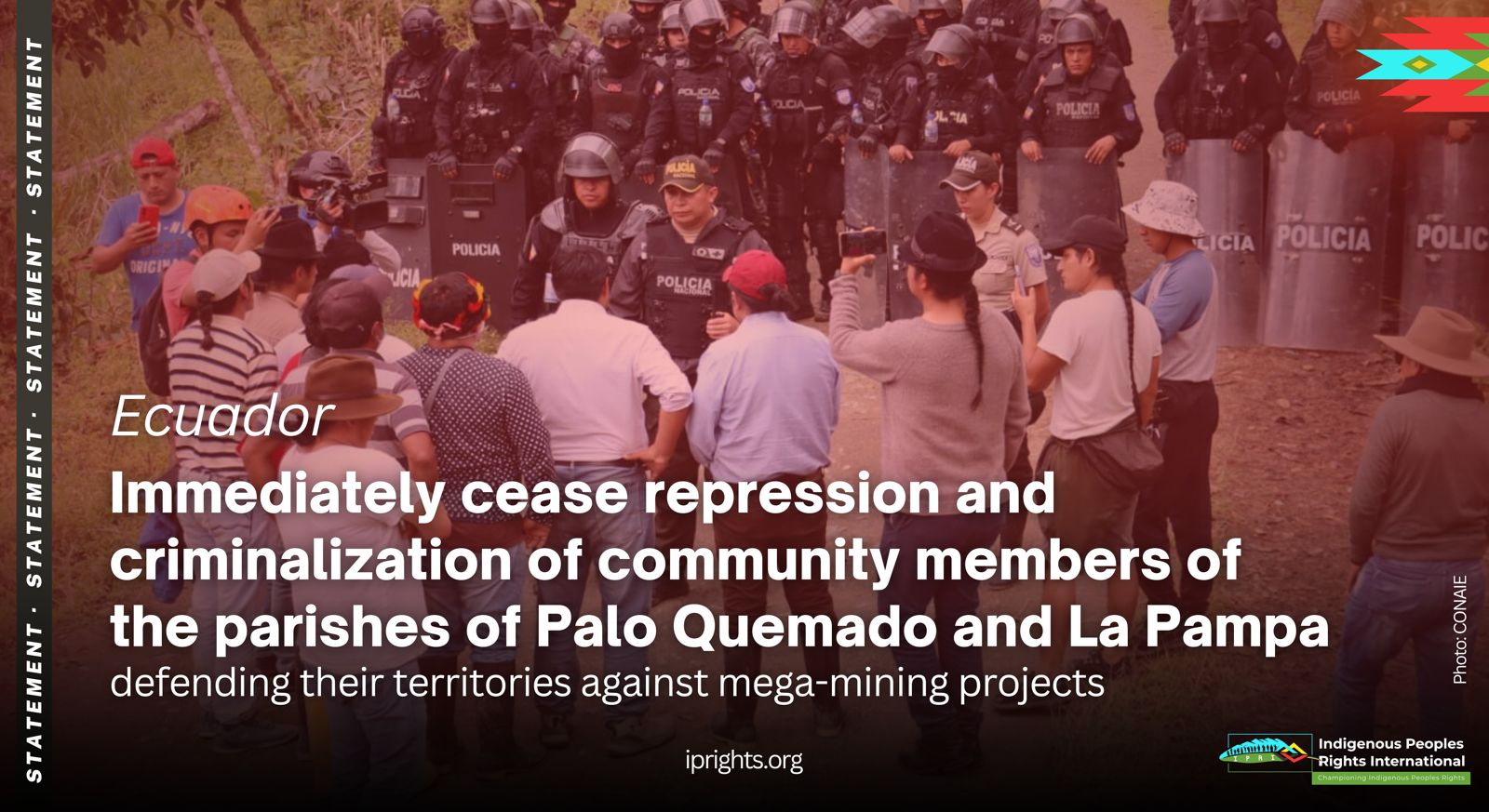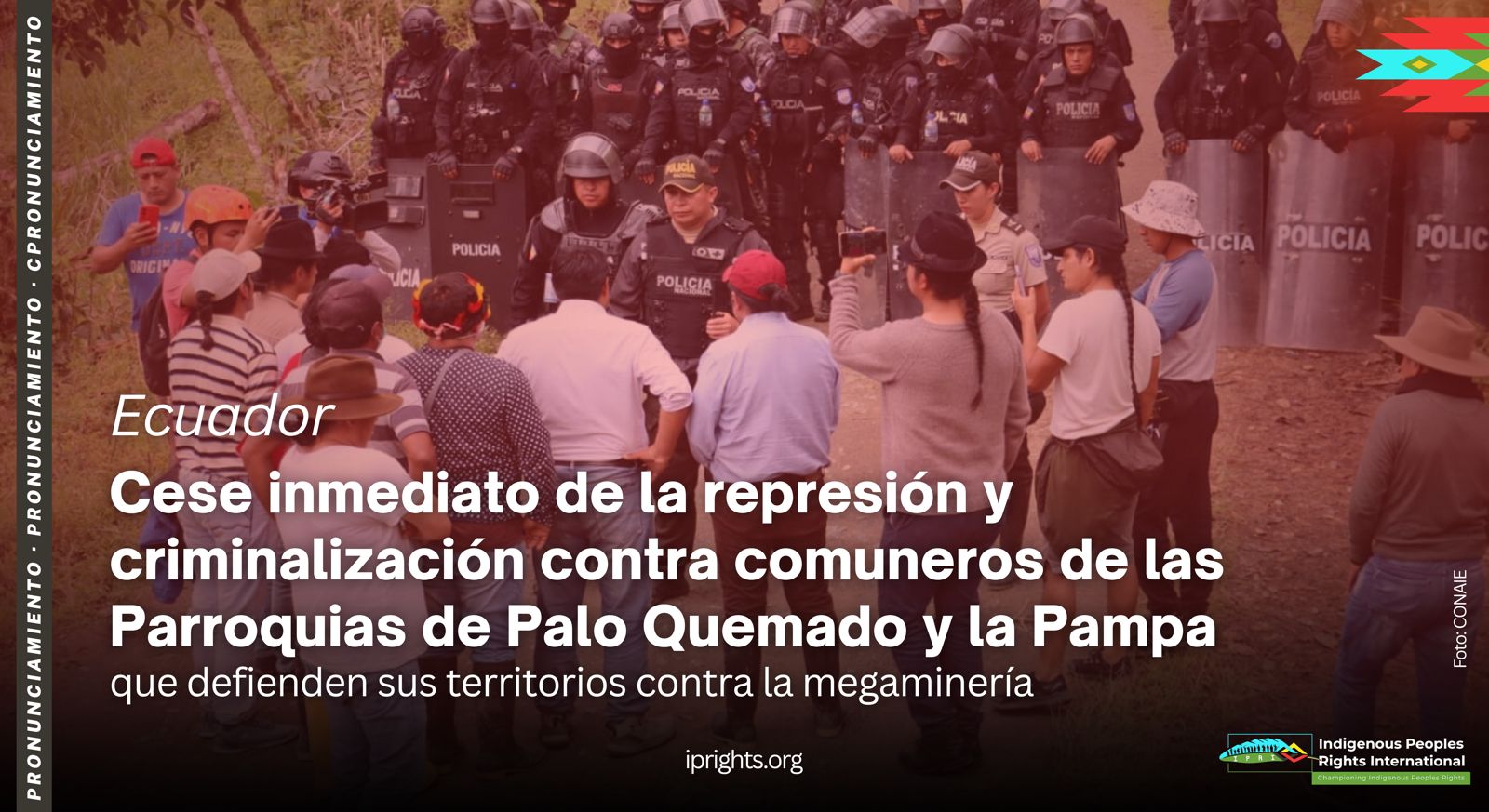Indigenous Peoples' Rights International (IPRI), an international indigenous peoples’ organization, is deeply concerned about the escalation of violence since March 19 in the parishes of Palo Quemado and La Pampa, in Cotopaxi Province, Ecuador. This is caused by police and military repression against community members opposing mining and the imposition of an environmental consultation process promoted by the government of Ecuador. As a result of the police and military action, 15 people are reported to have been injured, some seriously, due to the use of rubber bullets, pellets and tear gas bombs, according to the Confederation of Indigenous Nationalities of Ecuador (CONAIE) and the Anti-Mining Front. In addition, the Canadian mining company, Atico Mining, has unjustifiably accused 70 community members of being "terrorists" for no other reason that their opposition to the mining project.
IPRI, a global organization created to protect the rights of indigenous peoples and to unite and amplify the call for justice for the victims of criminalization and impunity, stands in solidarity with the communities and people affected by these acts of repression. We urge the government to guarantee the integrity of the people and to respect the individual and collective rights of the country's indigenous nationalities, peoples and communities, including their right to live in a healthy and ecologically balanced environment.
We call on the Ecuadorian government to respect indigenous peoples’ right to effective participation in decision making, including to give or withhold their free, prior and informed consent to measures that may affect their rights in accordance with international human rights standards, including the United Nations Declaration on the Rights of Indigenous Peoples. Effective participation and prior consultation must be carried out respecting the organizational structures of the community, as well as its duly and legally constituted authorities, and through regular channels and the protocols/procedures recognized by the community. Ecuador has ratified various international human rights conventions which contain obligations that the State must respect in relation to the rights of indigenous peoples and their actions in defense of their rights and their environment. These current actions violate these obligations, including by allowing a private company to use the highly prejudicial term ‘terrorist’ in relation to indigenous peoples’ rights defenders.
In this regard, we would like to recall the recommendations and observations made by the former UN Special Rapporteur on the rights of indigenous peoples following her visit to Ecuador (A/HRC/42/37/Add.1) stating that "[i]n light of the violations of the rights of indigenous peoples resulting from the unconsulted imposition of many extractive projects, it is recommended that no new concessions be made without adequate consultation and the free prior informed consent of indigenous peoples. All concessions that are not in accordance with the Constitution and international standards on the rights of indigenous peoples should be reviewed and, if necessary, canceled."
Likewise, the highly inappropriate allegation of “terrorism” against 70 indigenous people constitutes an illegitimate attempt to misuse the judicial system that seeks to curb internationally protected means for the defense of indigenous peoples’ rights.
We urge the Ecuadoran government to immediately cease criminalization of and violence against the community members of the parishes of Palo Quemado and La Pampa and to comply with its constitutional and international obligations regarding the rights of indigenous nationalities, peoples, communities, and communes.





